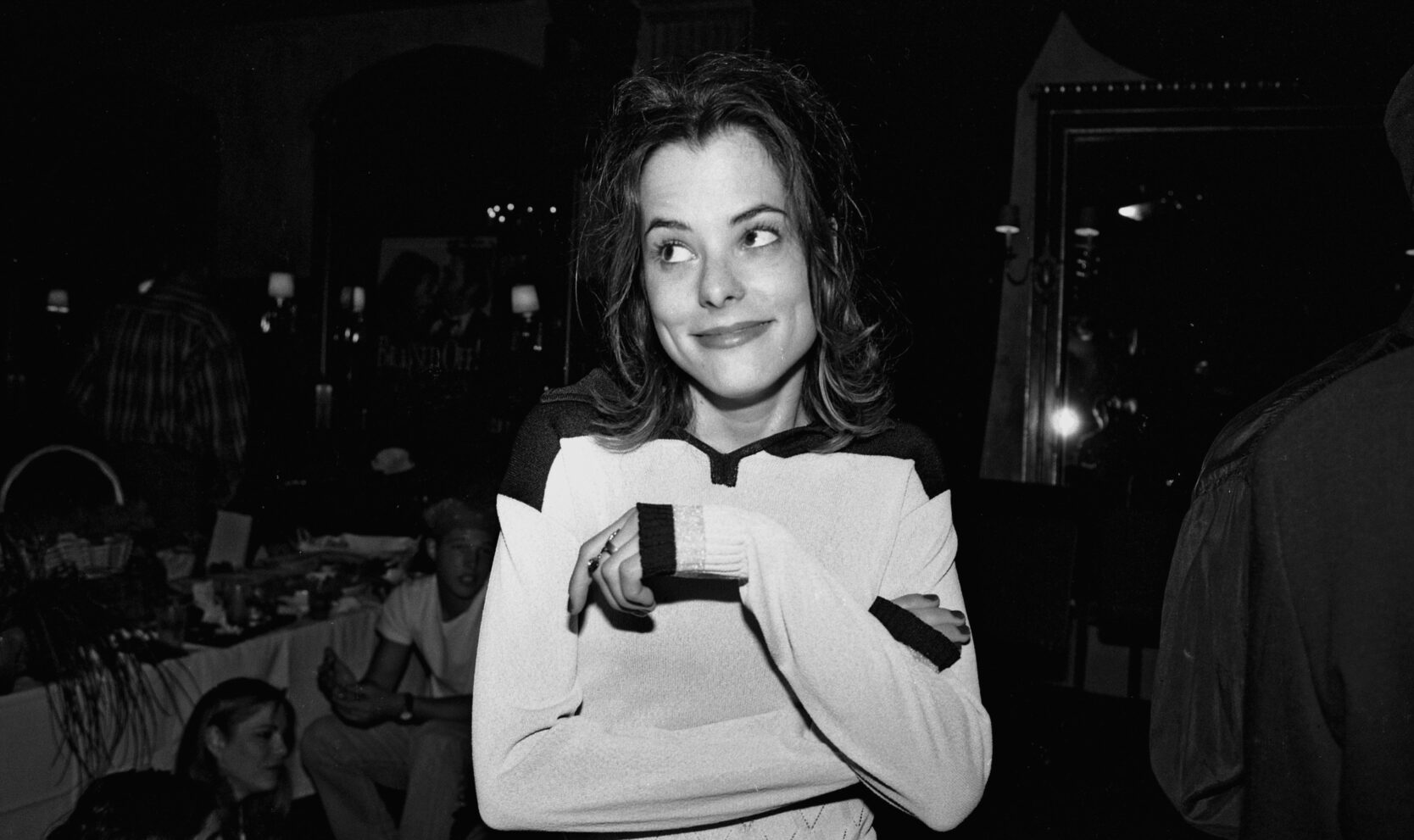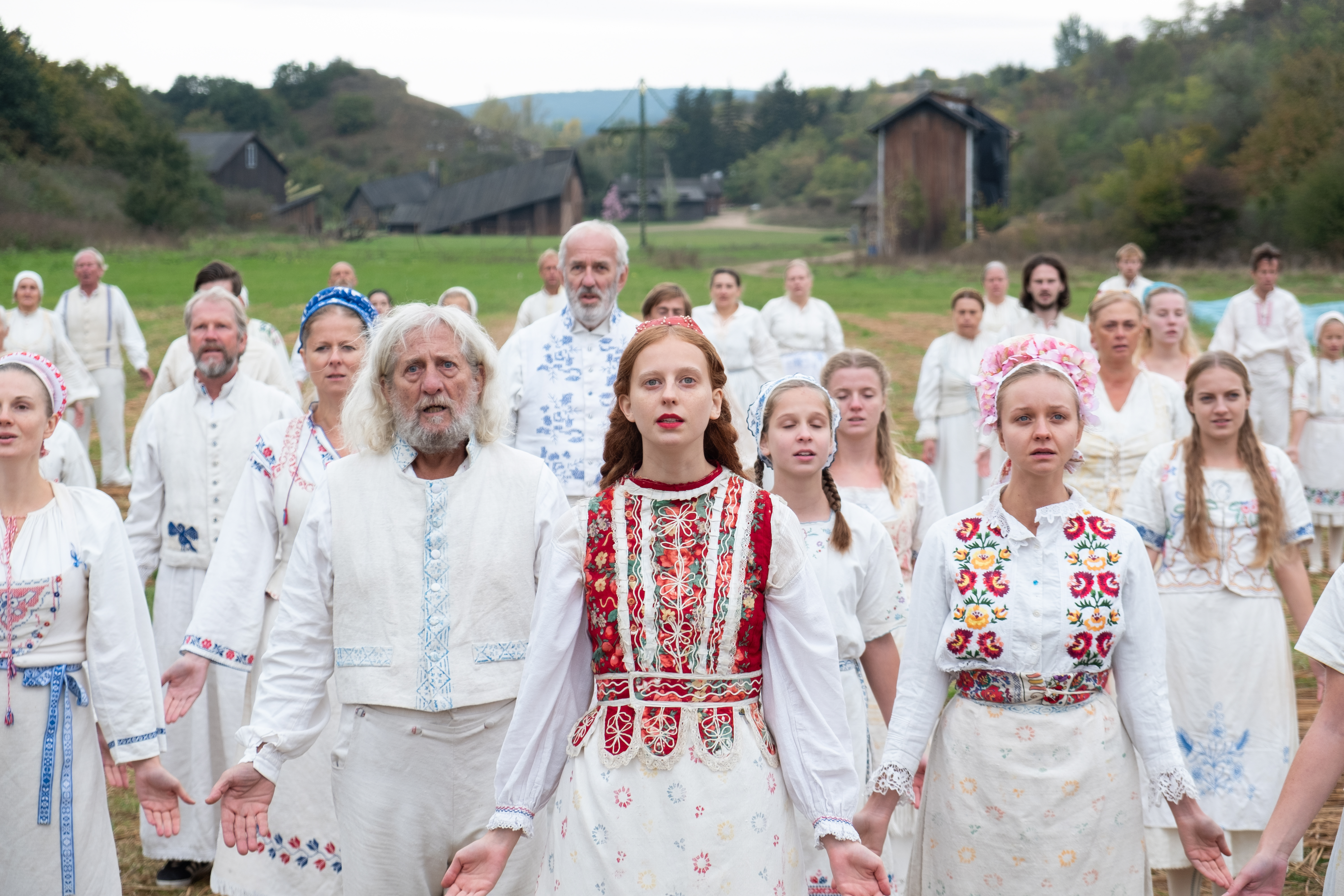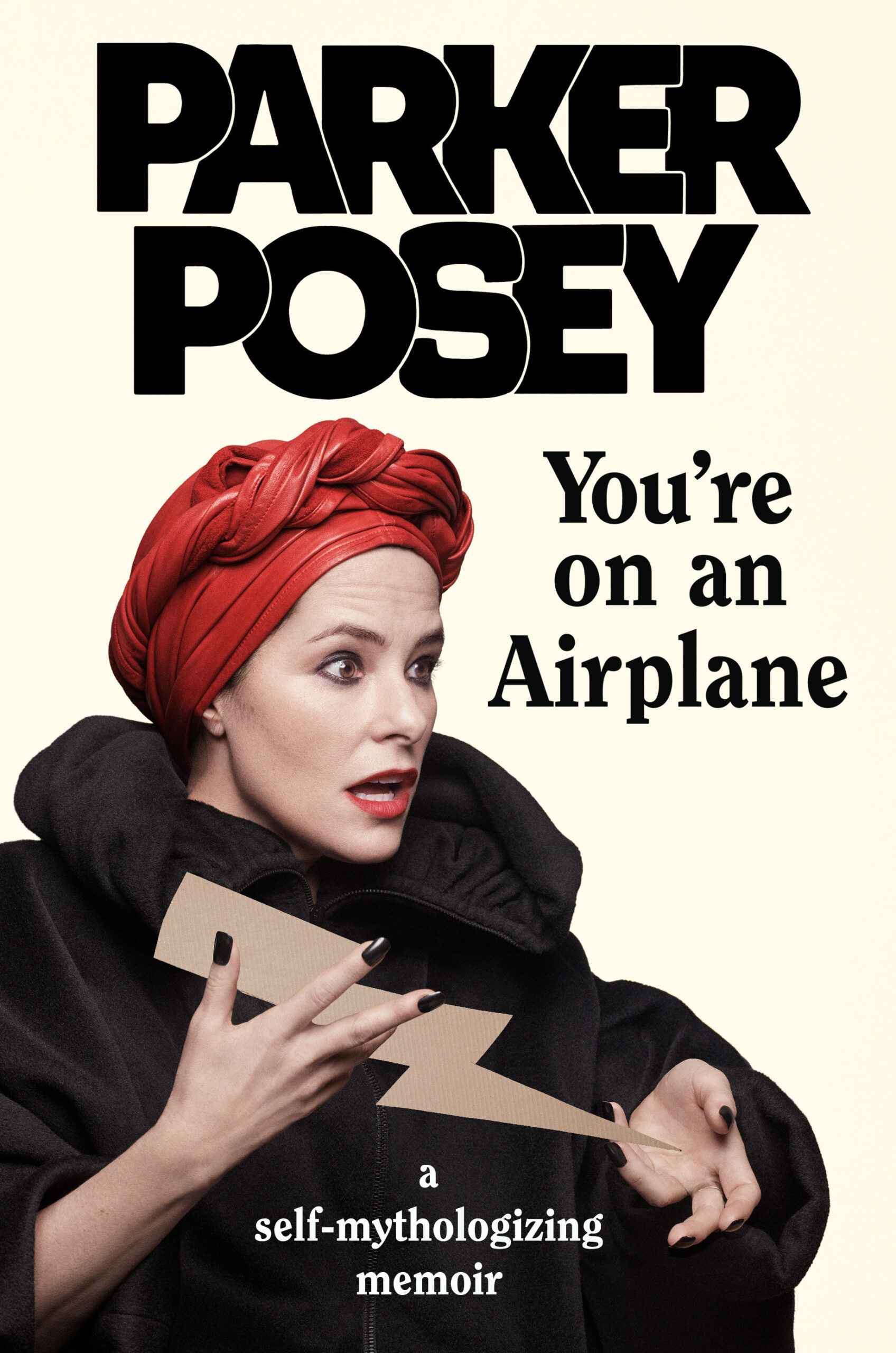There’s never been quite as distinctive a cinematic presence as Parker Posey, who was somewhat perfunctorily crowned “Queen of the Indies” thanks to the vast number of American independent films she appeared in during the 1990s. As she points out in her 2018 memoir, You’re on an Airplane, the categorization was somewhat of an albatross, and was anointed just as the freewheeling possibilities of independent cinema shifted drastically, when a mixture of studio franchises and tentpoles—paired with the expansion of smaller production companies—created a divide which left many of her pedigree without a stable platform.
Although she humbly defines herself as a character actor, Posey in fact straddles a much more complex and unique bridge between being a performer who can both enhance the capacity of an ensemble as well as carry a film’s narrative upon her shoulders. Parker doesn’t blend into a background, but rather evens out all the colors of any scene she’s in. She exudes the glamorous ambience of those Golden Age stars of Hollywood, whose offbeat personas offered a generous prologue to their far-reaching fathoms both on- and off-screen.
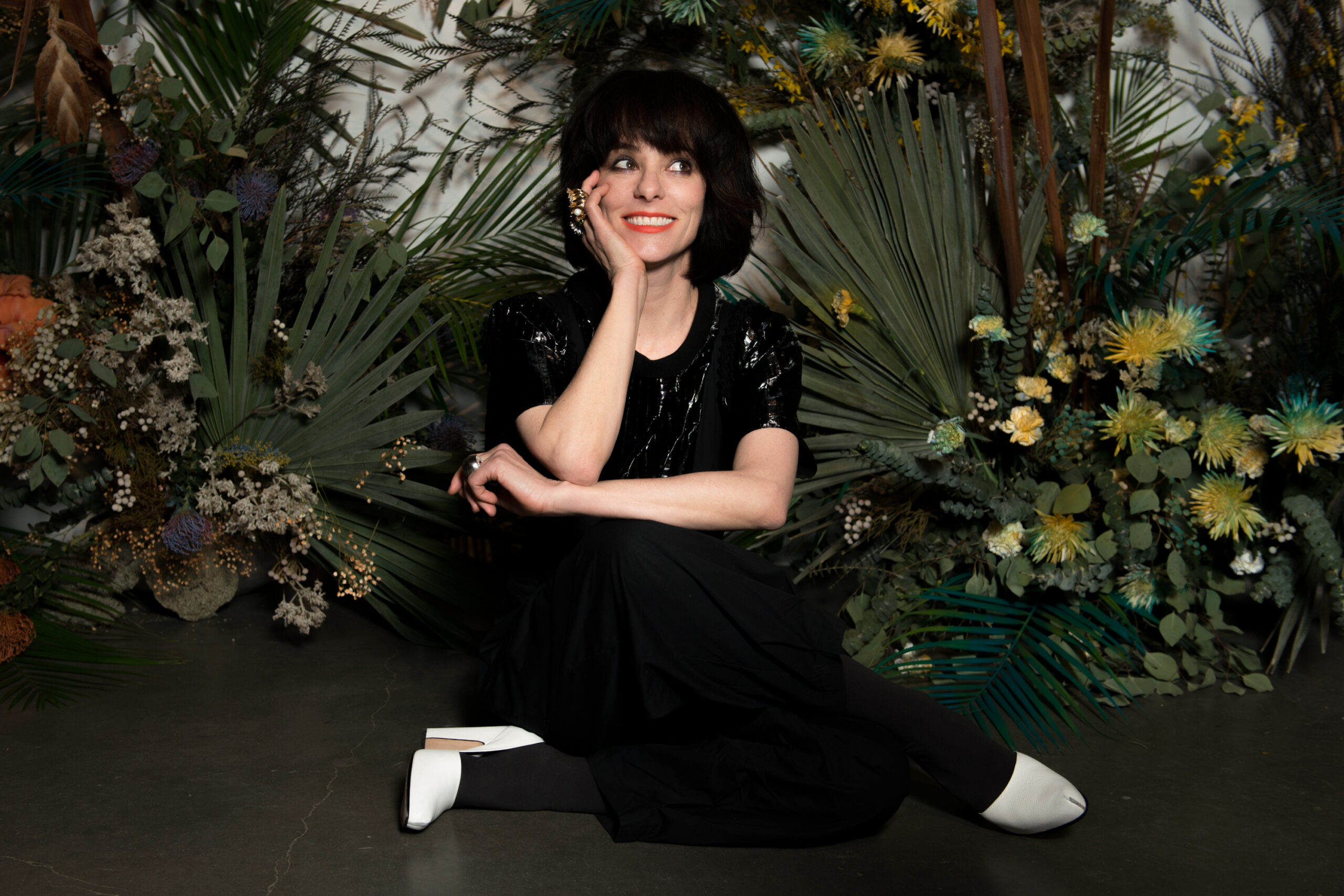
If her indie heritage has been used to overtly define her (Posey used to joke in ‘90s interviews about needing help from her parents to pay her therapist), so has the limited view of her enhanced abilities as a comedian. But Posey’s comic chops have always been drawn from a well of wistfulness, and whether she’s been portraying deranged (The House of Yes, 1997), shrill (Dazed and Confused, 1993), lonely-hearted (Broken English, 2006) or self-aware (For Your Consideration, 2006), her characterizations convey a versatility beyond their written form. Perhaps this explains why auteurs like Hal Hartley, Richard Linklater, and Christopher Guest have utilized her on multiple occasions. Woody Allen also hired her twice, giving her the most interesting role in his 2015 Irrational Man.
Her career also offers a cogent blueprint paralleling the evolution of cinema, independent and otherwise, since her arrival in the 1990s. Early supporting roles found her crossing into the New Queer Cinema movement of the era, thanks to her appearance in Tom Kalin’s Frisk (1995), Gregg Araki’s The Doom Generation (1995) and the first televised iteration of Armistead Maupin’s Tales of the City in 1993 (she reappeared for the 2001 revival). Several years later, she headlined Thom Fitzgerald’s mournful AIDS melodrama The Event (2003). However, her arrival was significantly heightened thanks to a star turn in Daisy von Scherler Mayer’s blissfully effervescent Party Girl (1995). She worked with Nora Ephron (Mixed Nuts, 1994; You’ve Got Mail, 1998), who was a mentor for her, and starred in Kicking and Screaming, 1995, The Daytrippers, 1996 and Clockwatchers, 1997. She also appeared in Julian Schnabel’s debut (Basquiat, 1996) as art dealer Mary Boone, one of several real-life personifications in her repertoire, which would later include Hemingway’s last wife in Philip Kaufman’s Hemingway & Gellhorn (2012) and formidable prosecutor Freda Black in the miniseries The Staircase (2022).
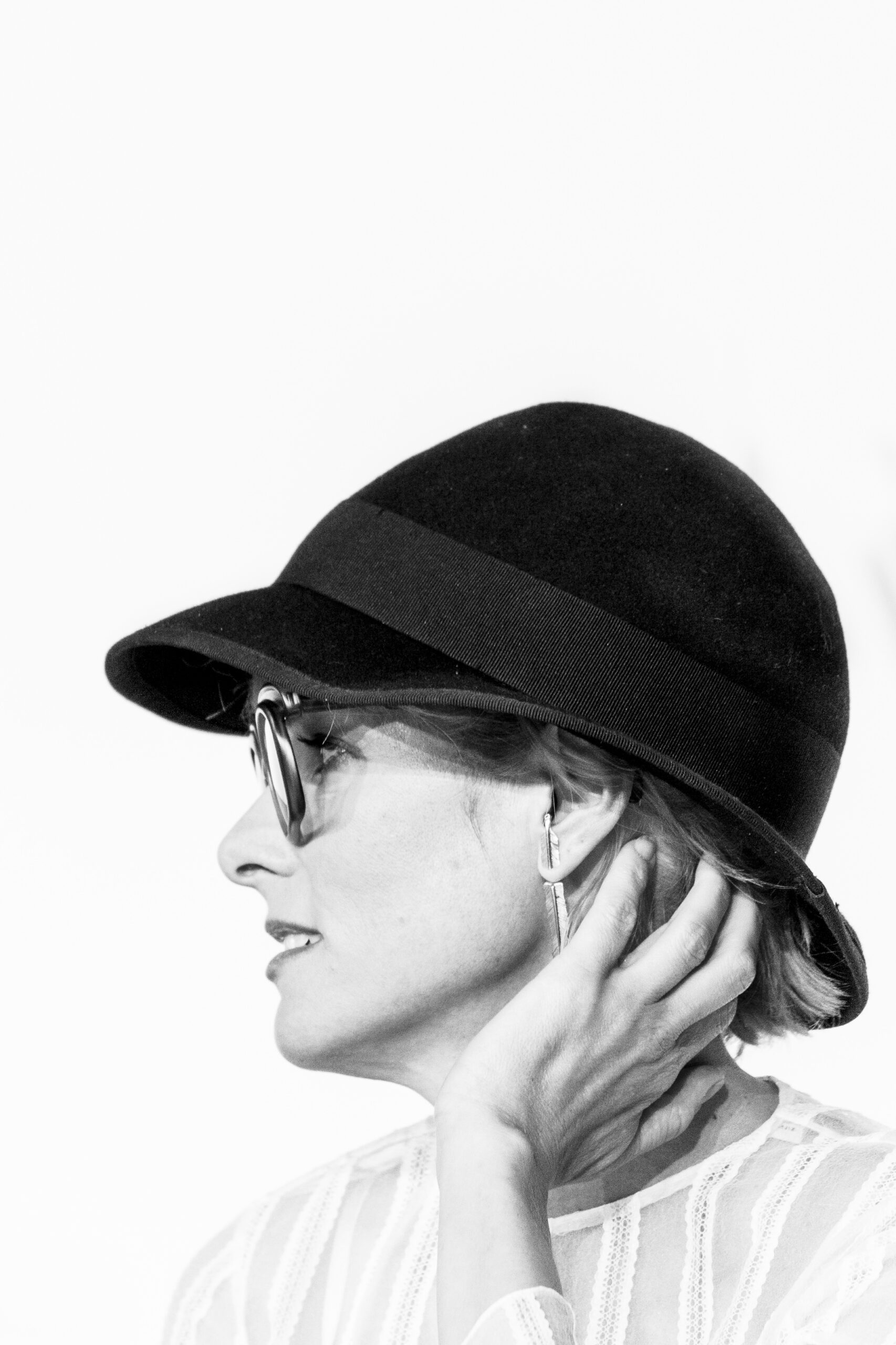
By the time the nature of independent cinema morphed headlong and conspicuously into the maw of commodification, Posey dipped her feet into studio franchises, stealing all her scenes in Scream 3, and then playing a vampire, in Blade: Trinity, in 2004, and a villainess in Superman Returns, in 2006.
Television would offer high-profile starring turns several years later as she’d appear as the most compelling character arch in the third season of Louie, and then play Dr. Smith in Netflix’s 2018 revamp of Lost in Space.
In 2023, Posey’s career provided a positive litmus test for the resurgence of cutting-edge cinema, appearing in Ari Aster’s highly anticipated Beau Is Afraid. It’s also a performance destined to reinforce her status as a cult icon, a goddess who arrived on our cinematic shores long before a devouring industry knew exactly how to utilize her.
While Beau Is Afraid is about to be unleashed on the public, Posey has also been headlining an Off-Broadway production of The Seagull/Woodstock, NY for The New Group, directed by Scott Elliott. It’s a contemporization of Chekhov’s classic production, penned by Thomas Bradshaw, and gives Posey an opportunity to properly flex her considerable skills as a narcissistic diva who plays devious, dysfunctional games with her woefully naive son.
Arriving prior to the onset of an evening performance during the last weekend of the play’s (extended) run, Posey breezes into the venue’s lobby, fresh off a nap, munching on a sandwich. It’s been a demanding run since the play opened in early March, ending just in time before she’ll jet off to Los Angeles for the premiere of Aster’s film on April 14. Raven-haired and glistening in a loose black ensemble (the cast performs exercises as themselves as an icebreaker leading into the first act), she’s both demure and mischievous, seating herself on the floor to be comfortable as we speak.
By the time the nature of independent cinema morphed headlong and conspicuously into the maw of commodification, Posey dipped her feet into studio franchises, stealing all her scenes in Scream 3, and then playing a vampire, in Blade: Trinity, in 2004, and a villainess in Superman Returns, in 2006.
Television would offer high-profile starring turns several years later as she’d appear as the most compelling character arch in the third season of Louie, and then play Dr. Smith in Netflix’s 2018 revamp of Lost in Space.
In 2023, Posey’s career provided a positive litmus test for the resurgence of cutting-edge cinema, appearing in Ari Aster’s highly anticipated Beau Is Afraid. It’s also a performance destined to reinforce her status as a cult icon, a goddess who arrived on our cinematic shores long before a devouring industry knew exactly how to utilize her.
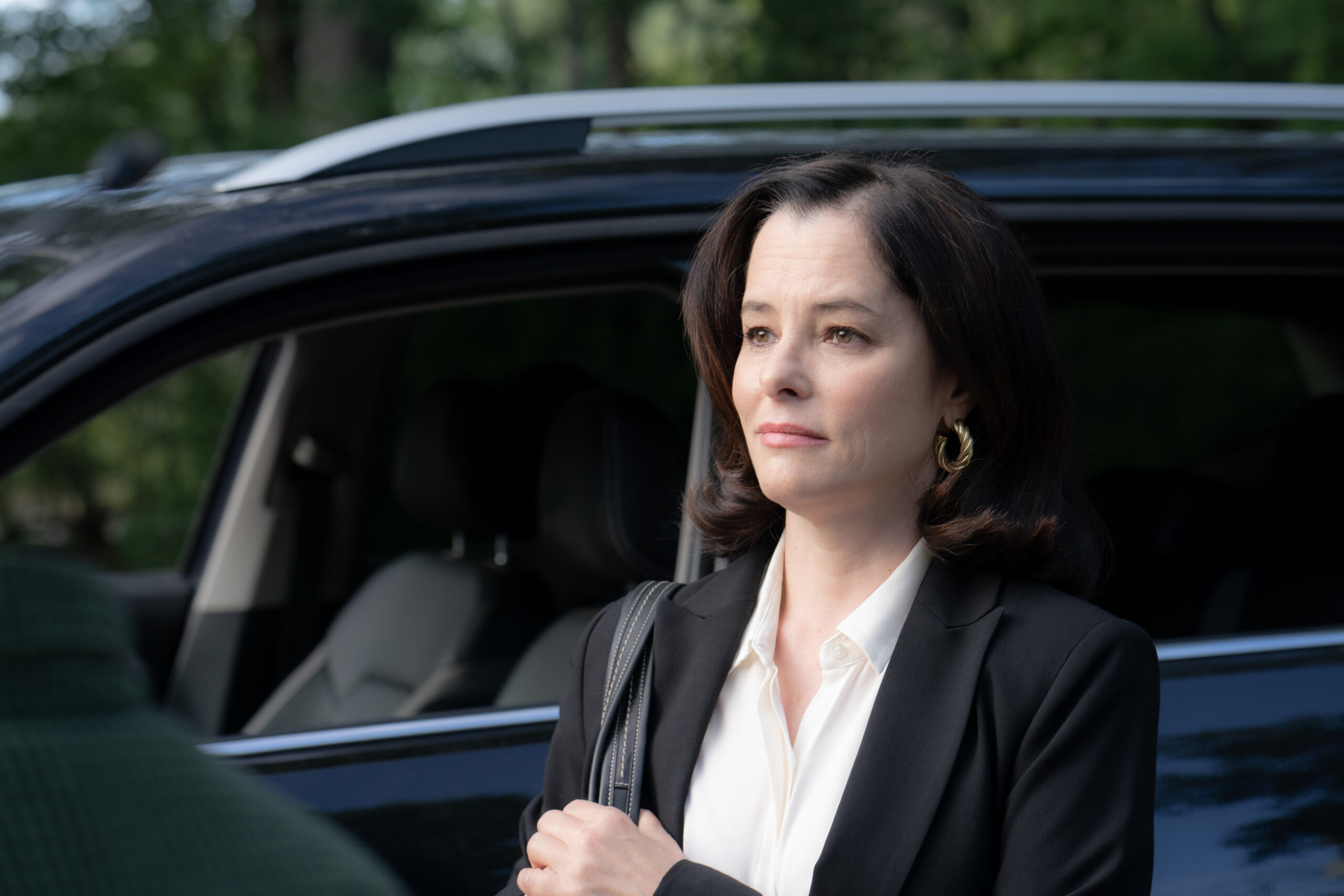
While Beau Is Afraid is about to be unleashed on the public, Posey has also been headlining an Off-Broadway production of The Seagull/Woodstock, NY for The New Group, directed by Scott Elliott. It’s a contemporization of Chekhov’s classic production, penned by Thomas Bradshaw, and gives Posey an opportunity to properly flex her considerable skills as a narcissistic diva who plays devious, dysfunctional games with her woefully naive son.
Arriving prior to the onset of an evening performance during the last weekend of the play’s (extended) run, Posey breezes into the venue’s lobby, fresh off a nap, munching on a sandwich. It’s been a demanding run since the play opened in early March, ending just in time before she’ll jet off to Los Angeles for the premiere of Aster’s film on April 14. Raven-haired and glistening in a loose black ensemble (the cast performs exercises as themselves as an icebreaker leading into the first act), she’s both demure and mischievous, seating herself on the floor to be comfortable as we speak.
Your career has fluctuated in similar ways to how the film industry has changed.
But I know people watch my movies. They go like, “Oh, well if she’s in it, this could be a certain kind of movie that I like.” Almost like Tilda Swinton.
The studio system co-opted the independent system. They don’t really nurture auteurs in this country like they should.
My number one favorite performance from you on film is Broken English.
Yes. I love that movie. I know Zoe Cassavetes did another film after that [Day Out of Days], and I also liked it. I remember Broken English traveled very well.
A lot of these movies when you talk about them, you mention them, I go like, “Why aren’t there more movies made like that?”
When I did Party Girl, it’s like, “Oh, maybe there’s going to be a real trend of a throwback, witty movie, witty writing.” The comedies just went into more broad comedy. I think we have so much animation when people grow up with so many cartoons. It’s more broad. I grew up watching old movies with my grandmother. We always had old movies on in the house.
That grittiness and realism and—I don’t know. It’s like being a woman. Broken English took three years to get financing. It’s a $1.2 million thing. It’s been wild to live in this reality.
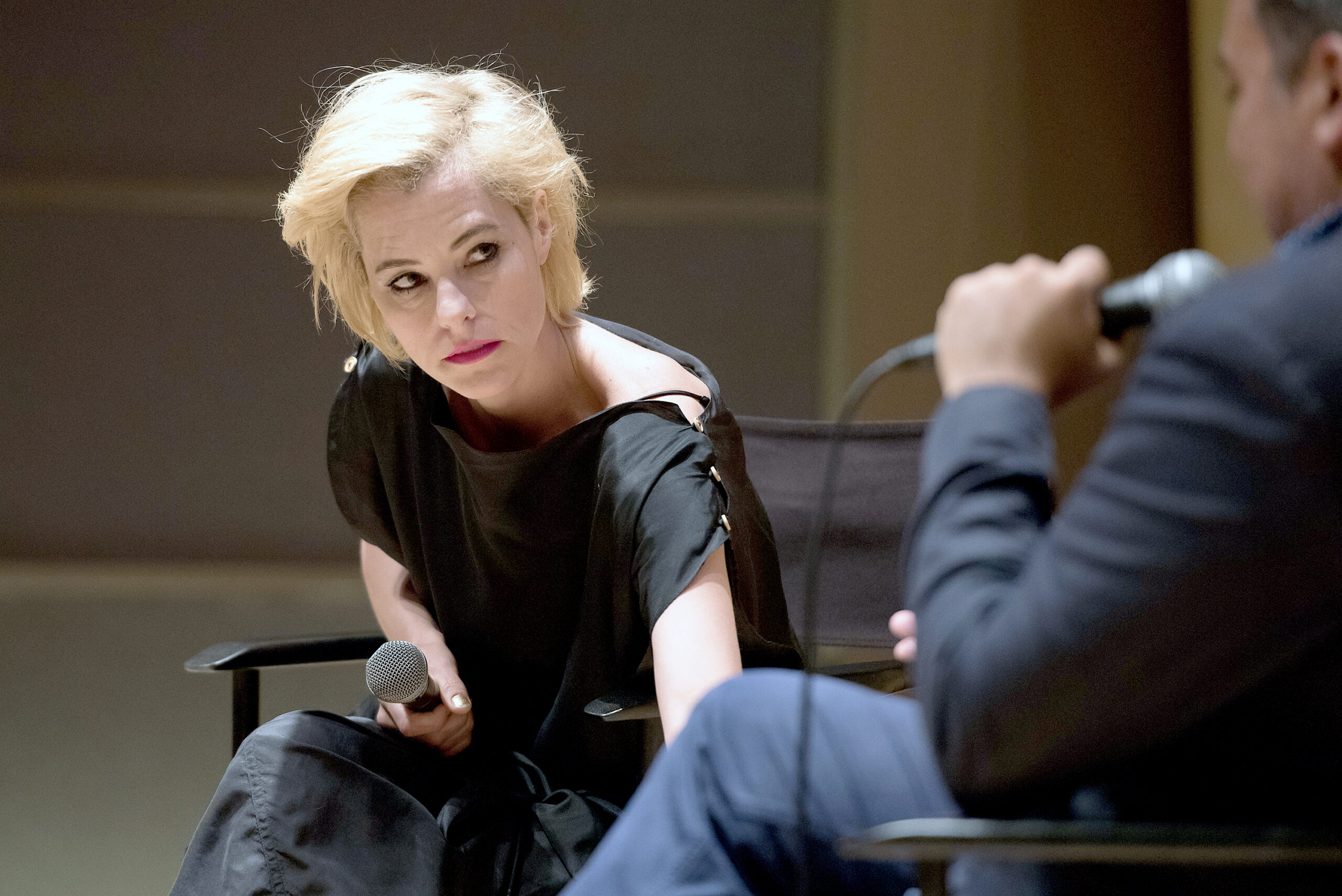
Party Girl is getting a restoration.
I know. When I did all those movies in the ’90s, I remember Graham Fuller, who was a journalist for Interview, was like, “Wow, you could have a retrospective of your work.” I wasn’t 30 yet.
Then all of a sudden that was erased, and I was playing vampires and a part in Superman Returns and just really all of a sudden new to a system that didn’t really understand me.
If we’re looking through your career as a prism, there are a lot of similarities to these transitions. You were also an alum of the New Queer Cinema movement in the ’90s.
That was a big deal. Party Girl. It didn’t really occur to me because when you’re in something, it’s just like a chosen family. It’s your crowd. It’s why you live in New York, but then I guess 25 years went by and a whole culture is not really up with the people who aren’t living a certain way of life. I don’t care if you’re gay or straight or Black or brown or yellow or whatever. It’s all a mix, and we’re here. We’re grown up, we’re here, we’re part of the generation. Generation X was like we had that freedom.
We had that freedom to live in that way. I didn’t really feel, looking back, things were going to progress. They’re going to get more open, more free, more colorful.
And they don’t.
I wasn’t prepared for how upsetting Beau Is Afraid was going to be because I was emotional watching Joaquin Phoenix in this nightmare.
Living to be an old man, to see his sons grow up and to… It just grabs you by the jugular.
I feel related to Joaquin. I feel like part of his family. I do. I feel like I just get him. Him and Ari are such great creators together. It was really wild waters. They’re really dedicated.
To those who go, “I thought it was too long…” Why do we have to put it in a box, a 90-minute limitation? In reality, you really can’t do a story justice maybe, certainly not every story.
It’s going to be one of the best films of the year for sure. It’s in a category all its own.
It’s seamless, Patti [Lupone] and Zoe Lister-Jones, the storytelling, the tone, you don’t know whether to laugh or cry. It’s just the way that it’s like magic. It’s like you’re in the hands of some magician working on how you’re deciding “What is my response?”
It has to do with how old you are, what you’ve been through, what day it is, any of that because it’s just great art.
We’re being manipulated somehow, but you’re not always sure how to respond.
Yes, that’s what it elicits. It’s like [the character] Jeeves who’s running and chasing after Beau. What is outside the house living in this trailer and the trauma of that, I found I was really affected by that.
Back to Chekhov, Ari really knows how to draw these characters. He knows how to draw them and then you go and animate them.
I think that’s why distributors like A24 and NEON are great, because people are excited for arthouse cinema again. As in the surreal, the strange… that’s what we need.
They want an experience. They want to go in and you want to see something that rattles them and makes them feel. I mean, I think that’s what horror and all that is about anyway.
It’s a year in your career kind of like the ’95, ’96 period or 2006, 2007, where you had all these really great projects. You have The Parenting in post-production. Then Thelma with June Squibb and Richard Roundtree. It also has a great cast. It seems like things are coming around.
Parker: Yes. I did something with Donald Glover and Maya Erskine, a re-invention of Mr. and Mrs. Smith. The Angelina Jolie and Brad Pitt thing. That was like an eight-episode [series] with me and Wagner Moura, who was in Narcos.
The Brazilian star. Yes. He’s such a good actor as well.
Oh, he was great. Yes, I’m happy to be fitting in again.
People think of you as a comedian, but again, going back to what I think is your range, somebody that’s great at comedy also tends to have a great sadness underneath it.
Of course. I’m happy to be just doing good writing. Just good writing.
I feel like I’m starting to trust my path more.
I think that you should do more memoirs, like Eartha Kitt, who had several.
You know what it is? It’s like I do think I will because I have to process my acting work in my life, they just mirror each other. I need to make sense of it by writing it down, and it’s fun to be entertaining that way.
My memoir…that was going to be a theater piece. It’s like, what if I wrote a book of monologues and then I went on tour, or went from town to town to little theaters and have people do monologues from my book and I’m like the acting teacher and they can, since everyone wants to get on stage and act, really take them through monologues, simply this acting teacher?
Then I was going to make a cardboard cutout of myself.
Because there’s a whole thing about feeling like a cardboard cutout and so have that for people to take pictures with if they want to.
I feel like people are, I don’t know… I worry the kids aren’t making things.
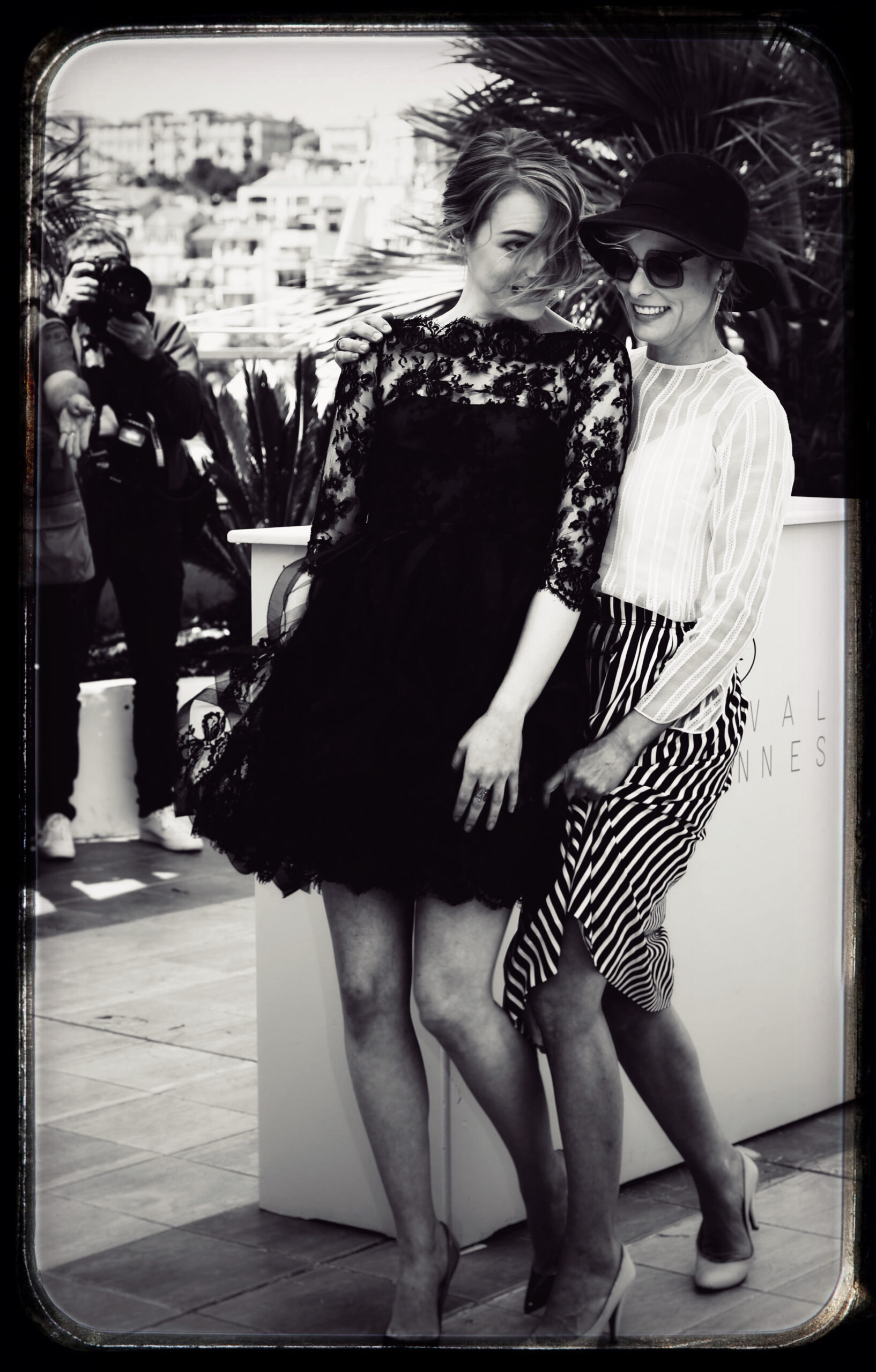
About 2007 or 2008, there was a project you were going to do with John Waters that was announced, and it never came together, a film called Fruitcake.
Oh, my God. I know. That was real devastating at the time. If John Waters couldn’t make a movie with me and Johnny Knoxville about some parents of this son, who they call Fruitcake… It’s Christmas time and they steal meat from the grocery store to sell at half price to the other neighbors. Fruitcake is friends with this gay couple’s daughter. I don’t remember everything, but I remember they were vegetarians and they had a little girl who I think is gay, and she was friends with Fruitcake, and there was this whole underground, almost Little Rascals type of musical.
I think that you’re so good in the role of Irene in The Seagull/Woodstock, NY. I wish there was a sequel about your character.
It’s like wrestling a bull to the ground. It’s my grandmother, it’s my family. Irene is really funny. One of my favorite lines is “Goodbye everyone. See you all again next summer, if we’re alive.” These dramatic people that are just like, “I could die tomorrow.” It’s just like living on such an edge, which I think is so fantastic because…she’s such a woman-child.
She is, yes, but always just a hair’s breadth away from turning left real quick, which I love.
It’s so fun.
Watch Nick and his husband Joseph review (and spoil) films on their YouTube channel, Fish Jelly Film Reviews. Their podcast of the same name is available everywhere.

